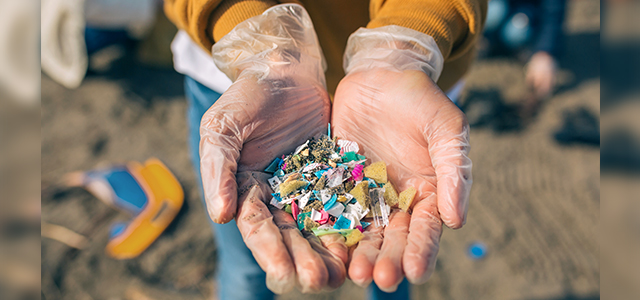Plastics. Whether you are indifferent or hate it, you and the rest of the population on average are consuming five grams of microplastics a week, according to a new study.
That’s equivalent to ingesting a credit card.
Commissioned by World Wide Fund for Nature (WWF) the study titled ‘No Plastic in Nature: Assessing Plastic Ingestion from Nature to People’ was led by Australia’s University of Newcastle micro plastics research team.
The study collated 50 international research papers, with an attempt to accurately calculate the ingestion rates of microplastics. From what the study calls “conservative assumptions”, the findings suggest that we consume 2,000 microplastics each week.
WWF International Director General Marco Lambertini told ABC News that these findings further show the need for governments to provide adequate global response.
“Not only are plastics polluting our oceans and waterways and killing marine life — it’s in all of us and we can’t escape consuming plastics.
“We need urgent action at government, business and consumer levels, and a global treaty with global targets to address plastic pollution,” said Mr Lambertini.
The highest plastic levels recorded were found in salt, shellfish and beer. However, the main source of plastic ingestion was found in bottled and tap water.
One of the University of Newcastle researchers Thava Palanisami said that the fibres found in water “could come from industrial activities.”
“It’s released with other gases and chemicals and this can then ultimately sink into the freshwater bodies and that gets into the drinking water.”
Dr Palanisami explained that there are no filtration systems that can keep sub-micron phase particles out of bottled water. In saying this, one study found that groundwater sources are mostly free of plastics.
Just Water?
So bottled water could contain microplastics which could very well be the by-product of the same plastic bottles entering our waterways. While the report mentions there are further studies underway to understand the effect this plastic ingestion on our health, the thought of this version of “recycling” can be enough to make stomach ache.
One company that is making waves in helping reducing plastic pollution globally by providing a sustainable alternative to bottled water is Just Water.
The brainchild of entrepreneur and actor Jaden Smith, Just Water was first launched in the US in 2015 before expanding to the UK and finally launching in Australia in March 2019.
The carton is 100% recyclable, with 82% of the materials used to make the carton coming from renewable resources.
And it’s reusable.
The 20-year-old, first thought of the product concept after surfing and seeing first hand plastic bottles contaminating the ocean.
“I’ve always felt really connected to the ocean so when I learnt about the Great Pacific Garbage Patch in school, then saw first-hand that there were plastic bottles floating around in the ocean – I knew we could come up with a better option,” said Jaden.
Just Water partnered with leading packaging company Tetra Pak to create the carton that is made from 54% paper, 28% plant-based plastic (the plastic shoulder and cap is made mostly from sugarcane), 3% Aluminium and 15% protective BPA-free plastic film.
Just Water states they use 100% spring water, with the Just Water in Australian stores using locally sourced Australian spring water.
The company also evaluates their environmental impact in every step of the production, use and recycle solutions.
As part of their community outreach Just Water, has been notably providing clean drinking water to Flint, Michigan community who since 2014 are in a water crisis with polluted water supply due to insufficient water treatment. Just Water also partnered with the First Trinity Baptist Church to design a mobile water filtration system called ‘The Water Box’ for the Flint community.
Just Water is available in Woolworths and 7-Eleven.
Melissa Stewart














